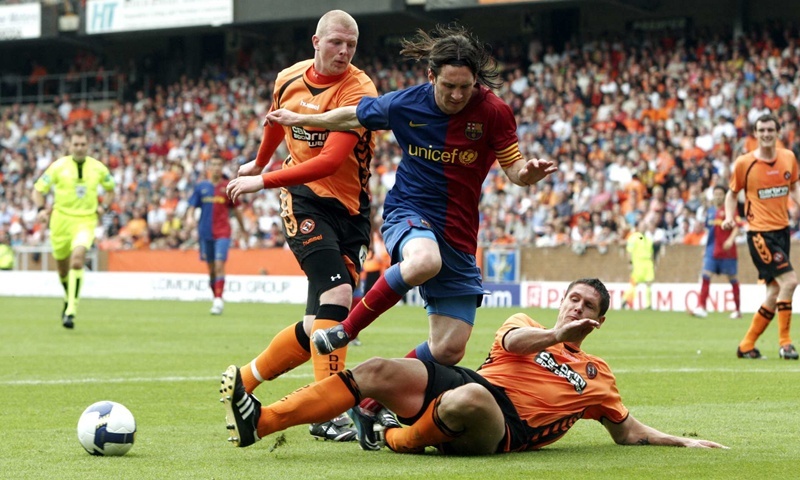It was with a smidgen of surprise in her voice that the Sky News presenter read out Dundee United’s name.
She can perhaps be forgiven those raised eyebrows because it is not too often nowadays that Barcelona, Bayern Munich and the Tangerines are mentioned in the same sentence.
The bulletin in question was highlighting the fact that the last time the mighty Barca lost both legs of a competitive European tie it was to United.
That was back in 1987 when, under their maestro of a manager Jim McLean, the wee club from a small corner of Scotland humbled the Catalan giants twice on their way to that season’s UEFA Cup final.
The fact that a whole 26 years have passed since ANY other club on the continent has managed to beat Barcelona both home and away in a two-legged tie should give United immense pride.
They will be disappointed that one proud record has gone but they still remain the only British club to have done it and, of course, combined with the 1966 efforts of Jerry Kerr and Co they still boast a 100% record against the La Liga champions-elect.
You also sense that it has taken a monumental switch in European football’s power base to match United’s magnificent achievement.
If Bayern’s 4-0 win at home in the first leg of the Champions League semi-final did not convince people that the German game was becoming the new force in Europe then surely their 3-0 success in the Nou Camp did.
Add to that the fantastic victory for Borussia Dortmund over Real Madrid, albeit by a narrower margin, in the other semi then it doesn’t take a genius to work out that something significant is going on.
German football has long been admired for its accessibility, affordability and atmosphere at matches. The Bundesliga can now argue that it is the place to be when it comes to sheer quality of play.
The clues to this seismic shift have been there. Former Barca coach Pep Guardiola’s decision to move to Munich in time for next season was just one that caught the eye.
The one major European country that seems relatively unaffected by the economic woes sweeping the continent is enjoying a boom time.
That will be hammered home later this month when Munich and Dortmund walk out at Wembley to contest the first-ever all-German Champions League final.
Also, if anyone fancies making a bob or two they could do worse than stick a few quid on the Germans to become the first European team to win the World Cup on South American soil when the tournament takes place in Brazil next year.
